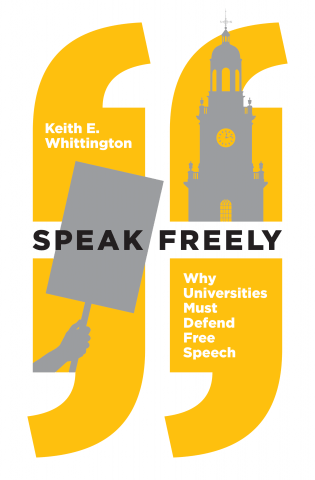Free speech is under attack at colleges and universities today, with critics on and off campus challenging the value of open inquiry and freewheeling intellectual debate. Too often speakers are shouted down, professors are threatened, and classes are disrupted. Constitutional scholar Keith E. Whittington argues that universities must protect and encourage free speech because vigorous free speech is the lifeblood of the university. Without free speech, a university cannot fulfill its most basic, fundamental, and essential purposes, including to foster freedom of thought, ideological diversity, and tolerance.
Examining such hot-button issues as trigger warnings, safe spaces, hate speech, disruptive protests, speaker disinvitations, the use of social media by faculty, and academic politics, Speak Freely describes the dangers of empowering campus censors to limit speech and enforce orthodoxy. It explains why free speech and civil discourse are at the heart of the university’s mission of creating and nurturing an open and diverse community dedicated to learning. It shows why universities must make space for voices from both the left and right. And it points out how a better understanding of why the university lives or dies by free speech can help guide everyone—including students, faculty, administrators, and alumni—faced with difficult challenges such as unpopular, hateful, or dangerous speech.
Timely and vitally important, Speak Freely demonstrates why universities can succeed only by fostering more free speech, more free thought—and a greater tolerance for both.

